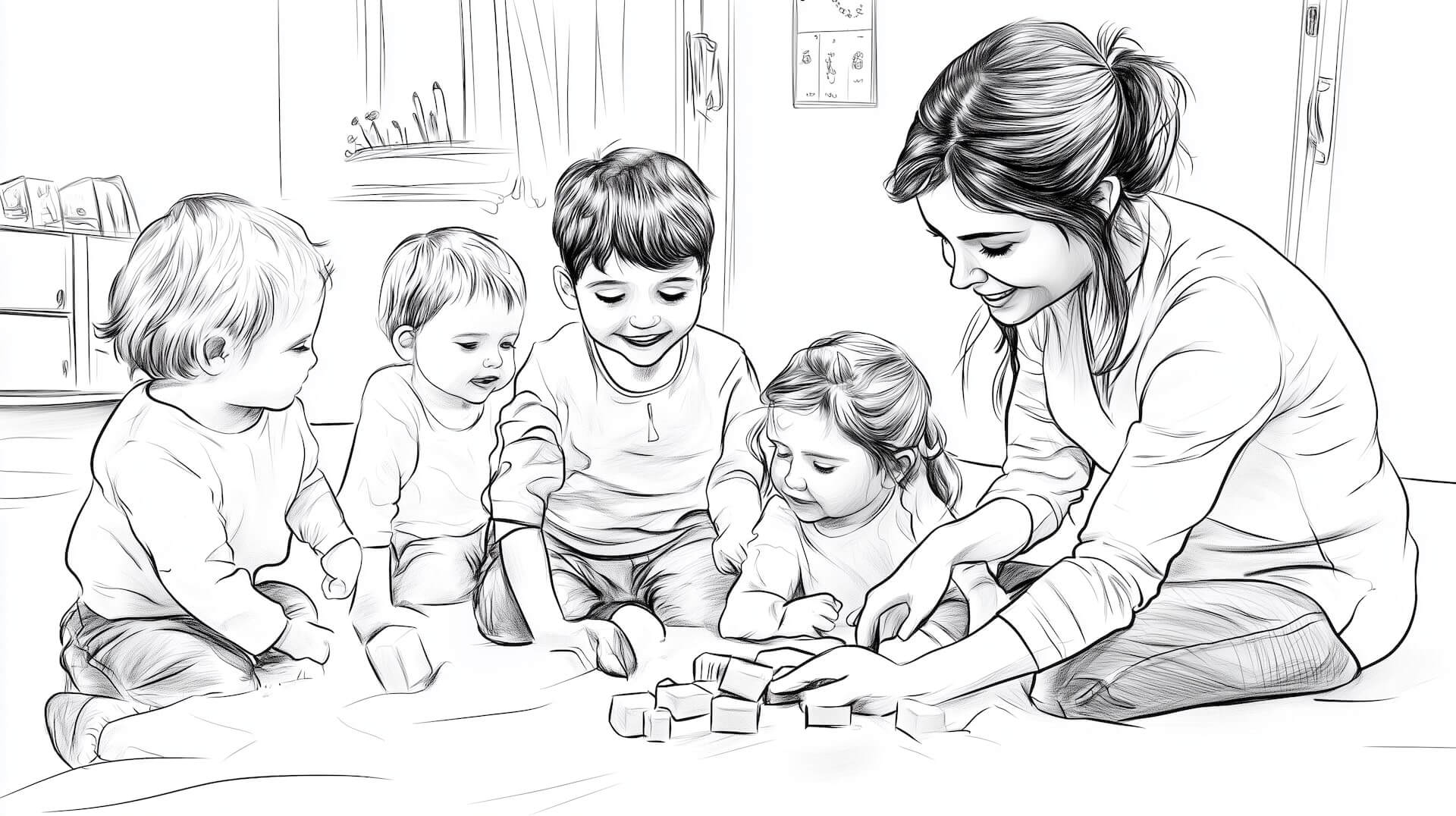Why Play Is Serious Work in Early Childhood Education

“It must be nice to get paid just to play with children all day!”
If you’re an early childhood (EC) teacher, chances are you’ve heard that line—often said with a chuckle, as if what you do is somehow less real, less skilled, or less important than “teaching” in a traditional classroom.
Play isn’t the break from learning in early childhood. It is the learning. And every moment of it, when guided by a skilled teacher, is purposeful, planned, and profoundly important.
In this post, we’ll unpack why play is the cornerstone of high-quality early learning, how educators use it strategically to foster growth and manage behaviour, and why dismissing it as “just play” misses the entire point.
What You’ll Learn
- Why play is the brain’s best learning tool in early childhood
- How EC teachers use play to target developmental goals
- Ways play helps prevent and reduce behavioural challenges
- How to reframe the stereotype that play-based teaching isn’t “real” teaching
1. Play Is the Work of Childhood
To adults, play might look like silliness, chaos, or downtime. But to a child’s developing brain, it’s the most efficient, effective way to learn.
Through play, children learn to:
- Solve problems and test ideas
- Develop language and social skills
- Build self-regulation and resilience
- Understand the world around them—physically, socially, and emotionally
Neuroscience backs this up: play stimulates brain development in ways lectures and worksheets can’t match—especially in children under five.
2. Great EC Teachers Don’t Just “Watch Play”—They Design It
There’s a world of difference between free-for-all play and intentional, educator-supported play.
Early childhood teachers are constantly observing, adjusting, and guiding play experiences to match children’s needs and goals. They know when to step back—and when to step in with the right question, tool, or challenge.
Behind the scenes, teachers are:
- Planning learning invitations that align with curriculum outcomes
- Scaffolding conversations to extend thinking
- Embedding literacy, numeracy, science, and social learning into open-ended play
- Supporting inclusion, emotional safety, and collaboration
In short: they’re teaching—all day long—through strategies that look playful, but are deeply educational.
3. Play as a Powerful Behaviour Tool
Here’s something that surprises many parents: play isn’t just a way to teach academics—it’s also one of the most effective ways to address and prevent behavioural challenges.
Why?
- Play gives children healthy outlets for big emotions and energy
- It provides predictable structure in a way that feels natural
- It fosters connection with teachers and peers—reducing attention-seeking misbehaviour
- It builds the social-emotional skills needed for long-term self-control
Rather than punish “bad” behaviour, skilled EC teachers create play environments that teach better ways to communicate, cope, and collaborate.
It’s proactive, relational, and far more effective than reward charts or time-outs.
4. “But Isn’t It Just Fun and Games?”
Fun and learning are not opposites. In fact, fun is often a sign that deep engagement is happening.
Think about how much more we all learn when we’re curious, relaxed, and emotionally invested. Children are no different. A playful approach reduces stress, increases motivation, and builds a love of learning that lasts well beyond the preschool years.
And yes—some moments of play are pure joy. But even then, educators are tuning in, taking notes, and finding ways to nurture each child’s next step in development.
5. Reframing the “Just Playing” Mindset
It’s time to retire the phrase “just playing.” When we say this, we unintentionally devalue the rich learning that happens during play—and the professionals who make it possible.
Here’s a better way to talk about it:
- “They’re exploring early math through building.”
- “They’re learning turn-taking and negotiation in that game.”
- “Their teacher set this up to build problem-solving skills.”
Play is not fluff. It’s the foundation. And early childhood educators are trained to make it meaningful, inclusive, and transformative.
Summary: Why Play Deserves Respect
- Play is how young children learn best—socially, emotionally, and cognitively
- Early childhood educators use play deliberately to teach and guide
- Play supports behaviour by teaching self-regulation and connection
- It’s time to reframe “just play” as serious, strategic learning
Play Is the Work—and EC Teachers Are the Experts
Next time you walk past a preschool classroom and hear laughter, noise, and joyful chaos—pause before assuming it’s just fun and games. What you’re seeing is children’s brains at their busiest, their hearts at their fullest, and their teachers working with precision and purpose.
Because teaching through play isn’t a break from learning. It’s how real learning begins.
Want to advocate for the value of early childhood education? Share this article or subscribe for more insights into what quality teaching looks like from the ground up.
